About AICDC Anishinabe Wakiagun
Anishinabe Wakiagun is an organization in Minneapolis, Minnesota that serves American Indian individuals experiencing chronic homelessness and substance use disorders. Services are offered either for free or with payment assistance options so that everyone in need can get shelter and care.
Support For Chronic Alcoholism in Indigenous Communities
The focus here is on culturally specific programming to address housing and homelessness in American Indian communities, as well as permanent supportive housing for individuals with chronic alcoholism. The approach used here is a housing first and harm reduction model, which means residents can continue to use alcohol should they choose, albeit in a safe environment, without risk of being kicked out of their housing situation or treatment programming.
The facility features 45 single room occupancy units and is based in the heart of the Native American Cultural Corridor. Transport options are available to support residents, as well as in house support groups and referrals for inpatient or outpatient mental health and rehab services.
Drug Detox Services and Culturally Sensitive Care
Clients here can also access withdrawal management services, including detoxification and chemical health assessments. Programming is culturally sensitive and delivered by Native staff, who aim to include traditional teachings and ceremonies in their care to help connect participants back to their cultural and ancestral roots as they ground into the recovery process.
Programming is also guided by the Medicine Wheel, addressing mental, physical, emotional and spiritual aspects of health and recovery. The center is located near the American Indian Center, as well as by the Hiawatha overpass and the Wall of Forgotten Natives.
Addiction Treatment Programs
Alcohol Rehab
If you’re struggling with your alcohol use, consider an alcohol rehab in Minnesota. Alcohol programs address the mental, emotional, and relational issues that may contribute to addiction. You’ll learn to build a new support network that supports your long-term sobriety.
Adult Program
An adult program in Minnesota can help clients make healthier life choices and avoid common mistakes. Along with traditional evidence-based treatment, clients may receive employment support, parenting classes, and help securing housing.
Men's Rehab
When people join a men’s rehab in Minnesota, they are able to tackle gender-specific issues while receiving treatment. Along with traditional evidence-based treatment, clients may receive education on topics relevant to men, such as fatherhood, healthy relationships, emotional vulnerability, and more.
Women's Rehab
A women’s rehab in Minnesota can provide every level of care while addressing the unique needs of women. Along with traditional evidence-based treatment, clients may receive help with childcare, classes in parenting, and advice about being a working mother and building healthy relationships.
Young Adult Rehab
If you’re a young adult struggling with substance use, consider a young adult rehab program in Minnesota. Along with traditional evidence-based treatment, clients may receive educational support, employment training, and help securing housing.
Insurance Coverage
Free
How do you find affordable treatment in Minnesota? A good option is looking for free rehabs. Free rehabs are often state-supported or run by your local county. You can find help with detox, inpatient treatment, and outpatient care.
Financial aid
When looking for ways to pay for rehab in Minnesota, consider asking about financial aid programs. Community groups or non-profits in your area may offer assistance, or you might find a treatment program that has grants or scholarships.
Levels of Care
- 1
Detox Treatment
During detox in Minnesota, you’ll be monitored as the substances leave your system. Then you can start fresh and create a new life. A medical detox program will provide 24/7 supervision by medical staff who can treat withdrawal symptoms with FDA-approved medication and other treatments.
- 2
Inpatient Rehab
During inpatient treatment in Minnesota, clients receive evidence-based treatment while living full-time at the facility. Residential treatment allows you to build new relationships and begin to learn how to enjoy life without substance use.
- 3
Outpatient Rehab
Outpatient treatment in Minnesota can provide a great way to practice and reinforce new habits formed in residential rehab programs. Outpatient treatment includes multiple approach, including cognitive behavioral therapy (CBT), motivational interviewing (MI), and holistic therapy options.
- 4
Aftercare Support
It’s easy to wonder what’s next after treatment, but fortunately, aftercare in Minnesota can provide ongoing support. The end of treatment is far from the end of the story, so take advantage of aftercare resources such as sober living, 12-step and other support groups, peer coaching, and more.
- 5
Sober Living Homes
A key part of long-term recovery in Minnesota is to have a safe, substance-free living environment, which is known as sober living. The end of treatment is far from the end of the story. Sober living gives you a solid foundation of support while you build your new, substance-free life.
Therapies
Cognitive Behavior Therapy
The goal of cognitive behavioral therapy (CBT) in Minnesota is to address negative thinking patterns to create positive change. CBT is a common part of evidence-based treatment programs and may be a part of inpatient treatment, outpatient care, or both. CBT can be empowering as you learn to manage your thoughts and emotions rather than being overwhelmed by them.
Creative Arts Therapy
Creative arts therapy in Minnesota allows you to create art that expresses emotions and helps you work through past experiences. Creative arts therapy is a complement to traditional evidence-based treatment approaches, and may be a part of inpatient treatment, outpatient care, or both.
Dialectical Behavior Therapy
The goal of dialectical behavioral therapy (DBT) in Minnesota is to help you recognize your strengths and embrace your ability to create positive change. DBT is a common part of evidence-based treatment programs and may be a part of inpatient treatment, outpatient care, or both.
Experiential Therapy
Experiential therapy in Minnesota involves activities that allow you to build confidence in your ability to make positive changes. Experiential therapy is commonly part of inpatient or intensive outpatient treatment and may be used to help with skill-building, addressing trauma, and managing substance use triggers.
Family Therapy
Family therapy in Minnesota can address conflicts in your family so your loved ones can help provide encouragement, support, and accountability as you work through substance use treatment. Some of the topics covered in family therapy include improving communication, developing healthy coping skills, avoiding codependency and enablement, and learning to support each other in healthy ways that foster recovery from addiction.
Group Therapy
Group therapy in Minnesota can provide encouragement, support, and accountability as you work through substance use treatment. Group therapy is a normal part of evidence-based treatment programs, and may be a part of inpatient treatment, outpatient care, or both. Topics include addiction education, sharing of experiences, and learning new skills.
Individual Therapy
During individual therapy in Minnesota, clients have a confidential environment to work through their struggles with a professional. Individual therapy is a common part of both inpatient and outpatient substance use treatment and may be used to help with skill-building, overcoming trauma, and creating a substance-free lifestyle.
Rational Behavioral Therapy
Rational behavior therapy in Minnesota can help you challenge the beliefs behind your emotions and actions. Learning which irrational beliefs you are most susceptible to can help you challenge unhelpful thoughts, create better interpretations of situations, and choose healthier responses.
Recreational Therapy
Sometimes the best way to learn is by doing. Recreational therapy in Minnesota is a holistic therapy that can allow you to build positive relationships, learn communication skills, and ask others for help when needed. You may struggle to gain personal confidence or learn to trust others in a traditional setting. Recreational therapy gives you a fun, different environment and can help you break through.
Trauma Therapy
Talking about what you’ve been through and how it impacted you is an important way to heal, and trauma-informed therapy in Minnesota gives you that opportunity. Trauma-informed therapy sessions generally last 60 to 90 minutes and may include discussing a specific event, talking about emotional triggers, and learning emotional regulation and cognitive restructuring skills.
Accreditations
Location
Contact AICDC Anishinabe Wakiagun
Top Drug Rehab Centers in Minnesota
-
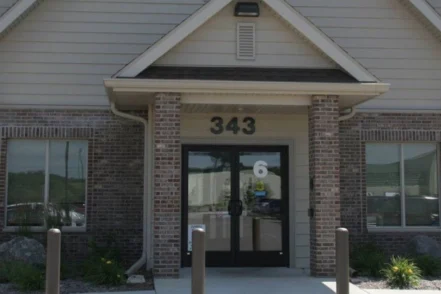 Minnesota
MinnesotaZumbro Valley Health Center Woodlake Drive
343 Woodlake Drive Se Rochester, Minnesota 55904
-
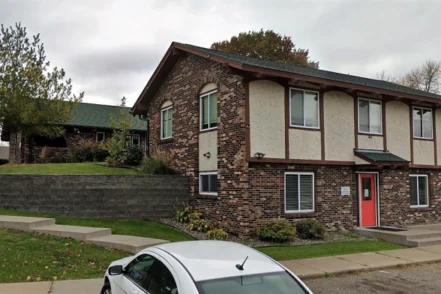 Minnesota
MinnesotaAnthony Louis Center Blaine
1000 Paul Parkway Minneapolis, Minnesota 55434
-
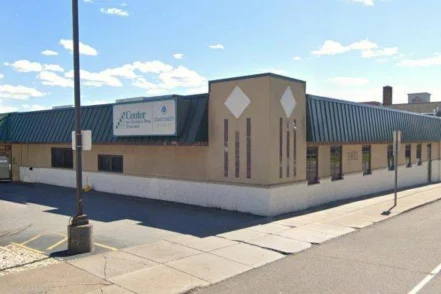 Minnesota
MinnesotaCADT Center for Alcohol and Drug Treatment
1402 East Superior Street Duluth, Minnesota 55805
-
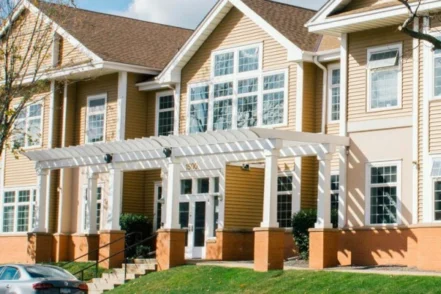 Minnesota
MinnesotaTurning Point Minneapolis
1500 Golden Valley Road Minneapolis, Minnesota 55411
-
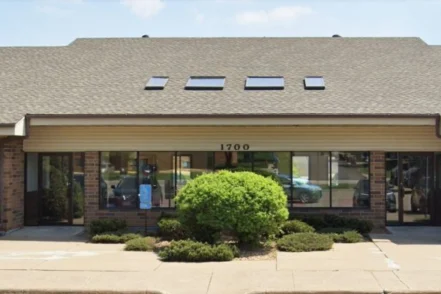 Minnesota
MinnesotaTwin City Chemical Health Services
1700 Livingston Avenue, Suite 102 West St. Paul, Minnesota 55118
-
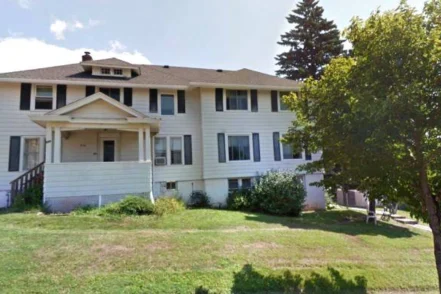 Minnesota
MinnesotaCADT Howard Friese House Hillside
714 North 11th Avenue East Duluth, Minnesota 55805
-
 Minnesota
MinnesotaMeridian Behavioral Health New Brighton
550 Main Street, Suite 230 New Brighton, Minnesota 55436
-
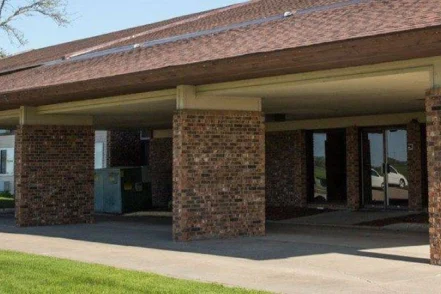 Minnesota
MinnesotaDouglas Place
1111 Gateway Drive Northeast East Grand Forks, Minnesota 56721
-
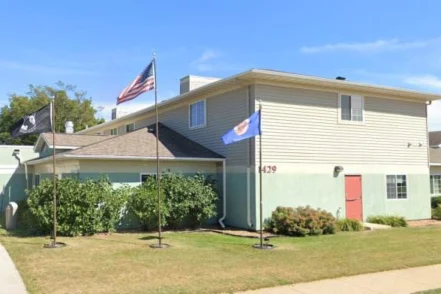 Minnesota
MinnesotaHouse of Hope Inc Mankato
1429 3rd Avenue Mankato, Minnesota 56002
-
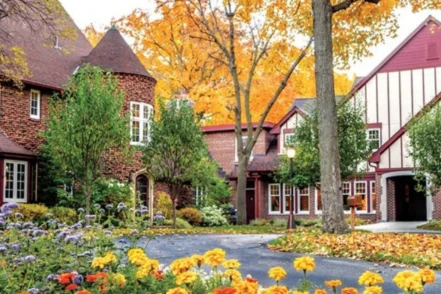 Minnesota
MinnesotaThe Retreat Wayzata
1221 Wayzata Blvd E Wayzata, Minnesota 55391

